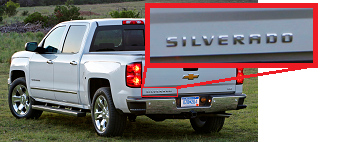Friday, 12 February 2016
01:09 PM
Friday words! I found out almost by accident that the company I work for gives us Presidents Day as a holiday, so here I am facing a three-day weekend. Thanks, Washington-and-Lincoln!
 The new-to-me term this week is boggle threshold, which is the border when you cross from belief to incredulity—or according to the article I found this in, "the level above which the mind boggles when faced with some new fact or report or idea." A boggle threshold is, obviously, idiosyncratic. For example, I might firmly believe that Bigfoot exists but find idea of ghosts bogglesome. Given that much of what we "know" about the universe is actually just a reflection of belief[1], the idea of a boggle threshold seems to have application across the range of human experience. Anyway, if you want more, you can read the original article (I believe) by Renée Haynes in which the idea was articulated. The new-to-me term this week is boggle threshold, which is the border when you cross from belief to incredulity—or according to the article I found this in, "the level above which the mind boggles when faced with some new fact or report or idea." A boggle threshold is, obviously, idiosyncratic. For example, I might firmly believe that Bigfoot exists but find idea of ghosts bogglesome. Given that much of what we "know" about the universe is actually just a reflection of belief[1], the idea of a boggle threshold seems to have application across the range of human experience. Anyway, if you want more, you can read the original article (I believe) by Renée Haynes in which the idea was articulated.

On to etymology. The other day we were driving down the freeway and a Chevy pickup passed us. After glancing at the model name, my wife asked "What does Silverado mean?" I went into what Ben Zimmer recently referred to as grammarsplaining mode, all like "Oh, -ado is a participial ending in Spanish that can be used for adjectival forms, like Colorado for 'red-colored' and dorado for 'gilt' or 'golden.'"
After this fusillade, my wife wisely asked no further questions. But I got to musing about how silver is not a Spanish word—it's plata for the metal, and "silver-plated" would be something like plateado. Apparently Silverado is some sort of madey-uppy marketing name.
Update Nancy Friedman has the origin (or an origin) for Silverado in the comments.
Anyway, if silver doesn't have a Latin root, where does it come from?
It turns out that some version of silver shows up in all the Germanic languages. There are also related terms in Slavic languages, but (apparently) nowhere else in the sprawling Indo-European family. The OED sort of throws up its hands about all this: "as to the relationship of these and the ultimate origin of the word no definite conclusions have been established."
Back when I was smart and went to college, I learned that Germanic languages have a set of characteristics that differentiate them from all the other languages in Indo-European. Among them is the fact that Germanic languages have a number of words that don't appear in other language branches. So maybe silver is one of these Germanic-only words, one that they perhaps deigned to share with their Slavic neighbors. (I have to imagine that any conversations about "sharing" silver involved weaponry.) But that's just speculation.
Like this? Read all the Friday words.
[categories]
language, Friday words
|
link
|